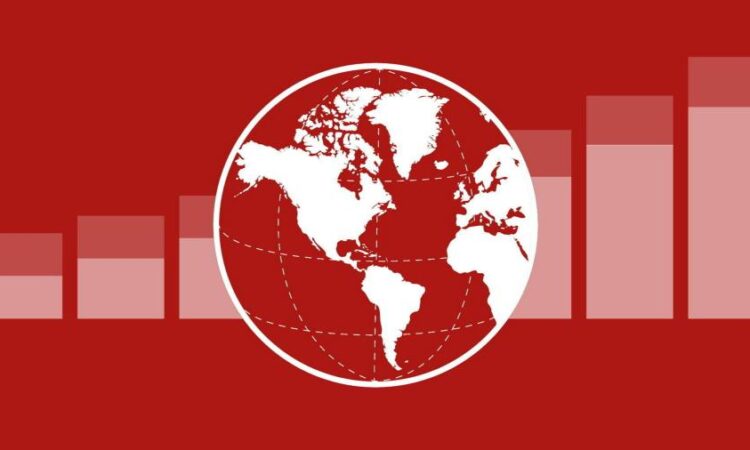
US and European stocks climbed on Friday, with traders emboldened by data showing inflation subsiding broadly in line with expectations, easing the pressure on central banks to keep raising rates.
Wall Street’s S&P 500 and the tech-heavy Nasdaq Composite rose 0.9 per cent and 1.1 per cent respectively in lunchtime trading in New York, taking the latter’s gains for the year to 17 per cent.
Shares in Digital World Acquisition Corp, the blank-cheque company that plans to take Donald Trump’s media outfit public, rose 6 per cent after the former president was indicted on criminal charges in New York.
Against a backdrop of acute tension in the banking sector, Friday’s gains in stock markets came after February’s US core personal consumption expenditures price index — the Federal Reserve’s preferred inflation gauge — slowed slightly more than expected to 4.6 per cent on a headline basis, year on year, from 4.7 per cent in January. Headline inflation fell from 5.3 per cent to 5 per cent.
Investors had expected central banks to continue raising rates before the collapse of three midsized US lenders and the buyout of Credit Suisse by rival UBS earlier this month, said Myles Bradshaw, head of global aggregate strategies at JPMorgan Asset Management. “[The market] now sees rates as already having peaked and anticipates rate cuts by year-end,” Bradshaw said.
US government bond markets were steady, with the yield on two-year Treasuries flat at 4.09 per cent. Bond yields move inversely to prices. The dollar strengthened 0.2 per cent against a basket of six peer currencies.
Europe’s region-wide Stoxx 600 rose 0.6 per cent after eurozone inflation fell more than expected, leaving the index up 6.7 per cent for the quarter.

Germany’s Dax, which is up more than a tenth since the start of the year, rose 0.6 per cent, while London’s FTSE 100 closed up 0.15 per cent.
Europe’s harmonised index of consumer prices slowed from 8.5 per cent in February to 6.9 per cent in the year to March as energy costs receded. Economists had expected prices to rise 7.1 per cent.
However, core inflation, which strips out volatile food and energy prices, rose to a fresh high of 5.7 per cent, from 5.6 per cent, in line with forecasts. Unemployment across the euro area was unchanged at 6.6 per cent.
Analysts said the figures were unlikely to deter the European Central Bank from raising rates by a quarter percentage point to 3.25 per cent when it next meets on May 4.
The yield on the policy-sensitive two-year German Bund slipped 0.02 percentage points at 2.68 per cent.
Asian equities advanced on Friday, buoyed by stronger than expected economic data in China.
Hong Kong’s Hang Seng index added 0.4 per cent, and China’s CSI 300 rose 0.3 per cent. South Korea’s Kospi and Japan’s Topix each advanced 1 per cent.
Activity in China’s non-manufacturing sectors grew at its fastest rate in more than a decade in March as business confidence rocketed and demand grew steadily, according to a closely watched official gauge.
“This strength won’t be sustained indefinitely, however,” said Julian Evans-Pritchard, head of China economics at Capital Economics. Much of the immediate boost from dismantling Covid-19 restrictions has “already passed” and the recovery is “likely to moderate over the coming months”, he said.



